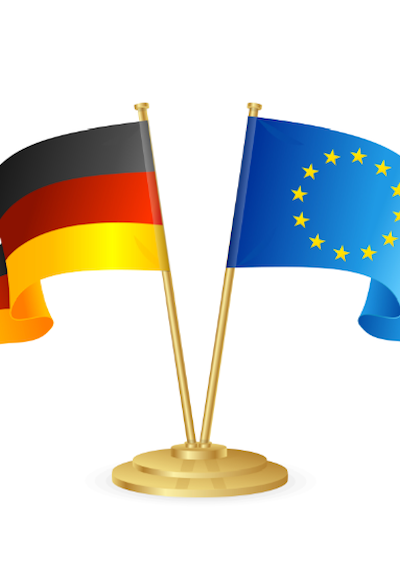The Dialectics of German Leadership in Europe
What does the balance of power in the EU shifting towards Germany really mean?
June 9, 2016

Europe and Germany are in real trouble. You realize this when one can read columns in The Economist entitled “The dispensable French,” while the cover sells Chancellor Merkel as “The indispensable European.”
When observers of international politics diagnose, with some justification, French dispensability and German indispensability in European matters at the same time, anyone with some knowledge of European history realizes that Europe’s crisis must be serious indeed.
The overwhelming majority of observers argue that the balance of power and status has tilted toward Germany.
That may be so. But what precisely does it mean? When leadership pops up in a German context, the “Führer” is always close by. The Greek crisis and the “return of the ugly German” have provided ample evidence of that.
To understand the dialectics of German leadership in Europe, it is very instructive to examine the seminal quote by former Polish foreign minister, Radoslaw Sikorski.
While in office, he famously stated: “I will probably be the first Polish foreign minister in history to say so, but here it is: I fear German power less than I am beginning to fear German inactivity. You have become Europe’s indispensable nation.”
Expectations from Germany
What is largely forgotten is that Sikorski continued his thought with the following (almost never quoted) words: “[y]ou [i.e., Germany] may not fail to lead. Not dominate, but to lead in reform. Provided you include us in decision-making, Poland will support you.”
This is the typical pattern which shows up when German leadership is called for: Germany should “lead” (as potential follower X prefers) – and it can count on willing followership (on the condition that X is “included in decision making.”)
In large part, this leadership experience is shared by all potential leaders who must count on willing followers. Even the much mightier United States is no exception.
In the months and years ahead, Germany may well find itself in an increasingly unenviable position. On the one hand, Germany “plays in an entirely different league politically compared to the Germany which celebrated its reunification 25 years ago.”
On the other hand, the gap between expectations from German leadership and deliverables — in terms of both successful German “taming” of Europe’s centrifugal forces and willing European followership — will almost certainly widen.
More pressure on Germany
Pressures are increasing simultaneously from within (in the aftermaths of the AfD-related right-wing backlash in German elections) and from outside (with continuing old crises and the possible addition of a few new ones.)
As fundamental beliefs in stable and “open-ended” collaboration within the European Union have been shattered and diffuse reciprocity — one of the key characteristics of any genuinely multilateral arrangement — is no longer as much part and parcel of daily practices of multilateralism in the European Union, we have entered a new and more uncertain framework.
Complaints about lacking European “solidarity” emanate from Greece to Germany and from Spain to Poland. They are expressions of frustration about the double bind in which the European Union’s nation states find themselves.
By bidding good-bye to the federal EU which the early EU advocates had envisioned, the alternative — “intergovernmental” solutions — ironically depend ever more on Germany.
Unenviable Germany
As a consequence, they produce precisely the kind of “German Europe” which presumably no one wants. Note, however, that this is not a Europe “dominated” by Germany in the sense that Berlin ever more often gets its way.
Rather, what looms at the horizon is a weak European Union, in Hannah Arendt’s political vocabulary. It is weak in the sense that it lacks the ability to “act in concert.” That is how Arendt defines power – and power of this type can manifest itself only where word and deed have not parted company.
This is a bar which Germany’s leadership personel has been able to meet in the past. But the bar has been raised significantly recently, leaving German leadership in an unenviable position indeed.
Editor’s Note: This feature has been adapted from the essay “Germany’s World. Power and Followership in a Crisis-ridden Europe” published in “Global Affairs.”
Takeaways
What does the balance of power in the EU shifting towards Germany really mean?
Radoslaw Sikorski: I fear German power less than I am beginning to fear German inactivity.”
Typical calls for German “leadership” are framed as: Germany should lead and can count on followers.
Complaints about lacking European “solidarity” emanate from Greece to Germany and Spain to Poland.
Read previous
Global Society
The 100 Million Club
June 8, 2016